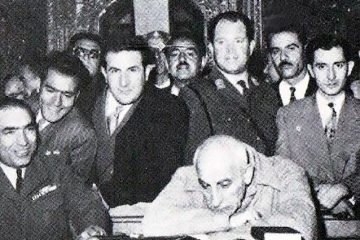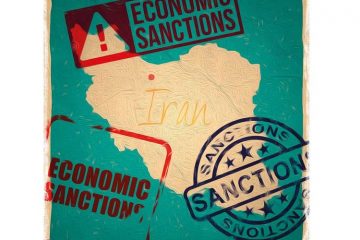The US economical sanction against Iraq in the first Persian Gulf War
In 1945, economic sanctions were legitimized in the UN Charter as a means of maintaining and holding world order. After this decision, until 2002, the UN used economic sanctions against other countries fourteen times, which were adopted and implemented only twelve times after the year 1990.
After the apparent ceasefire in the Persian Gulf War, UN Under-Secretary-General Martii Ahtisaari visited Iraq and used the word “catastrophic” to describe the situation in Iraq after the US bombings; only because all the infrastructure of this country, including hospitals, water supplies and sewage facilities, all hydroelectric dams, grain silos, etc., were destroyed. Later, official documents showed that the US bombing in 1991 was deliberately and consciously aimed at destroying infrastructure and crippling Iraq.
American and British officials were well aware that imposing the economic sanctions on a nation based on imports without critical infrastructure was exactly the same as using weapons of mass destruction against them. Compared to sanctions against other countries at the time, the sanctions against Iraq were so extensive and comprehensive that they controlled virtually all of Iraq’s imports and exports. By exerting influence and use of its power in political structures, the United States, with and for no reason, even allowed the importation of basic goods into Iraq, or sometimes issued these permits with a delay of several months. Permits were basically issued for some industries to import certain specific parts and their facilities, but the United States continued to prevent the import of the main tools and raw materials needed by that industry, and as a result, other imported goods could not be used; For example, the factory issued a permit for the import of several tools, but the import of a sewage generator was prohibited!
Ahtisaari said at the time that a catastrophe awaited Iraq, and he actually was right! According to UNICEF reports, from 1991 to 1998, 500,000 Iraqi children under the age of five died due to lack of proper food, health care and other basic necessities of life; That is three times the number of Japanese casualties in the US nuclear attack on the cities of Hiroshima and Nagasaki! This statistic would definitely reach over one million people, taking into account the casualties of adults!
In a June 23, 1991, Washington Post article, Pentagon officials stated that the aim and purpose of attacking Iraq’s infrastructure was to dismantle the foundations of the country’s civilian economy and increase sanctions:
“People say, you didn’t recognize that it was going to have an effect on water or sewage, said one planning officer at the Pentagon. Well, what were we trying to do with sanctions – help out the Iraqi people? No. What we were doing with the attacks on infrastructure was to accelerate the effect of the sanctions.”
Another plan implemented and conducted by the UN Security Council against the embargoed Iraq was the Oil-for-Food Program. Accordingly, Iraq could buy its basic goods in exchange for selling a partial amount of oil and as much as 60 percent of its revenue; That is, for every Iraqi, only a figure of about one hundred dollars a year that should be spent on all personal expenses, economic infrastructure and essential services such as water and electricity, and so on.
In 1999, Denis Halliday, Assistant Secretary-General of the United Nations, resigned after thirty-four years of serving in office:
“I am resigning, because the policy of economic sanctions is destroying an entire society. Five thousand children are dying every month… I don’t want to administer a programme that satisfies the definition of genocide…”
He called the oil-for-food program a hoax. Halliday’s sponsor in Iraq, Hans von Sponeck, with a fifty-year history, also resigned. Sometime later, Jutta Burghardt, the head of the World Food Program, resigned in a similar move, declaring that he could no longer bear to witness the disasters that occur upon the Iraqi people. After a series of unprecedented resignations, the game continued, with seventy members of Congress calling on Bill Clinton to lift sanctions and end the killings, but nothing happened.
Since the announcement of the ceasefire, which apparently ended the first Gulf War, Iraq has been hit by bombs or missiles on average every three days. But news of the bombings of Iraq in the 1990s did not reach the media, and the world ignored the US and British actions; The bombings, however, were the longest-running US-British bombing operations, targeting most of the farmer villages, fishermen and civilians. Also, by 2003, more than 5 million dollars’ worth of essential goods had been blocked by US Secretary of State George W. Bush with the support of Britain’s Tony Blair, with the approval of the UN Sanctions Committee, but that also did not seem to be an interesting case for the media!
Under the same media silence policy, CBS TV never allowed Madeleine Albright’s video interview to be rebroadcast. Asked if killing half a million children was the price worth it, Albright, the US ambassador to the United Nations at the time, said: “Yes, we think the price is worth it.”
“Is the price worth it?”
An interview with Madeline Albright, secretary of State during the Clinton administration
She is responding to a question about the devastating effects of sanctions imposed on Iraq after the Persian Gulf War in 1990-91. According to the UN, hundreds of thousands of Iraqi children died as result of the sanctions, and Albright is asked if those deaths are “worth it” to the US …
Interviewer: We have heard that half a million children have died. I mean, that is more children than died in Hiroshima. And, you know, is the price worth it?
Madeleine Albright: I think that is a very hard choice, but the price, we think, the price is worth it.
- Source: Tell Me No Lies: Investigative Journalism and its Triumphs, John Pilger, (2004), published by Jonathan Cape



0 Comments